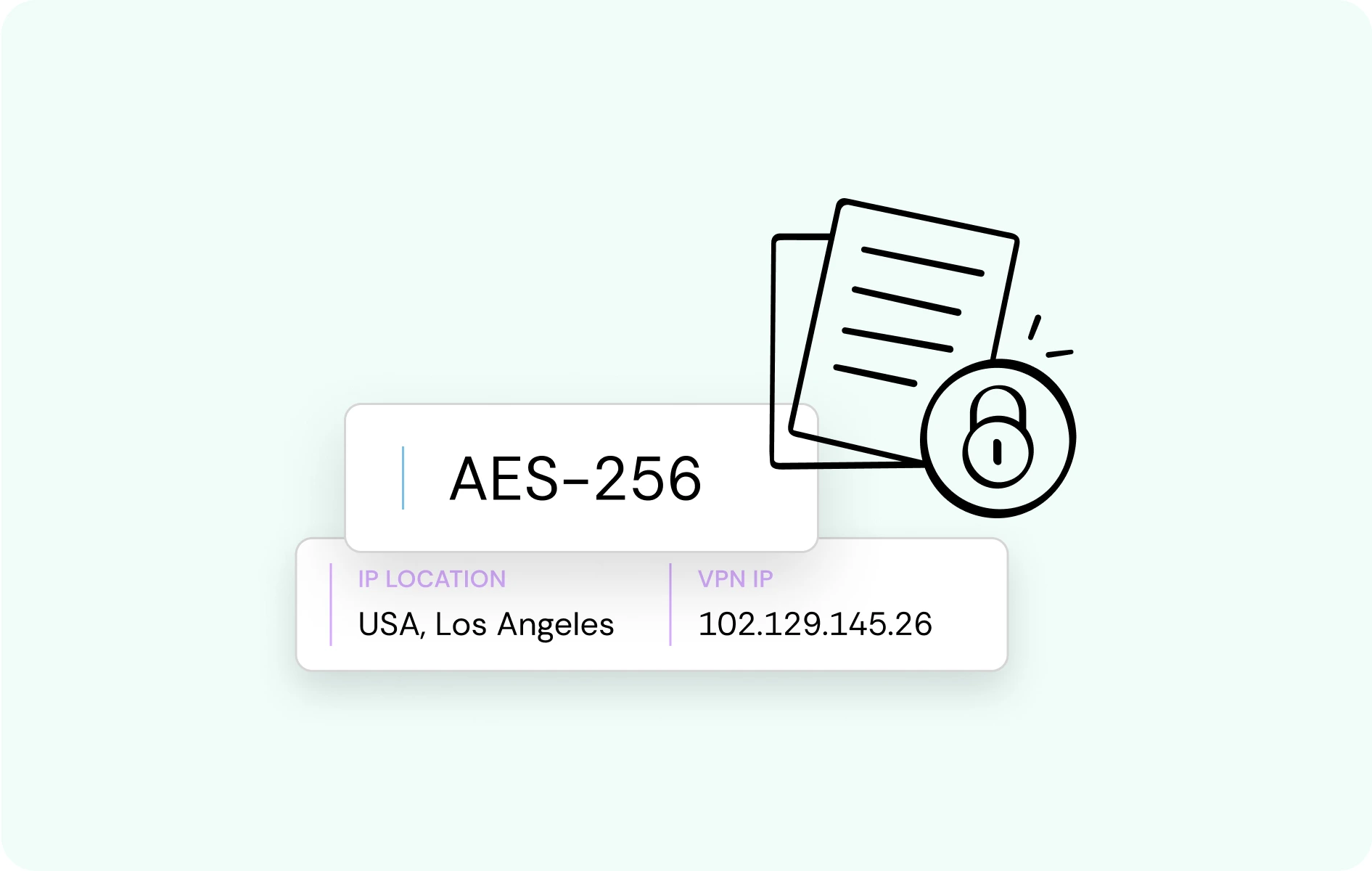What is VPN encryption?
A Virtual Private Network, or VPN for short, encrypts your internet data into a secure and unreadable format to protect it from third parties, internet service providers (ISPs), and malicious entities.
How does VPN encryption work?
Most VPNs use AES-256 (Advanced Encryption Standard with a 256-bit key) to encrypt data. This encryption method is widely considered to be the gold standard for security.
AES encryption is optimized for speed, uses military-grade protection, and it's also highly resistant to brute-force attacks, which is why governments and security agencies worldwide utilize this encryption protocol.

Supported VPN protocols
Benefits of VPN encryption
Why choose CometVPN?
How to enable VPN encryption on CometVPN
Choose a plan that works for you:
most popular
24 Months
+3 Months Free
12 Months
+1 Month Free
Residential VPN
Uses IP addresses derived from household devices, making detecting your VPN usage nearly impossible
Dedicated Residential IP
Get an IP address that’s reserved just for you.
Obfuscated VPN
Hide your traces even further, making it difficult to detect that you’re using a VPN service
30-day money-back guarantee.
Payment methods:
Questions & answers
What are the types of VPN encryption?
There are several VPN encryption types and most VPNs use a combination of these methods to secure data transmission. The main types of VPN encryption include:
- Symmetric encryption – Uses a single key for both encryption and decryption.
- Asymmetric encryption – Uses a pair of public and private keys.
- Hashing – Converts data into a fixed-length hash.
- Perfect Forward Secrecy (PFS) – Changes encryption keys to boost security.
What is the best VPN encryption?
The best VPN encryption is often considered AES-256 combined with Perfect Forward Secrecy (PFS) for maximum security. AES VPN encryption is virtually unbreakable and used by governments and cybersecurity experts.
How does a VPN encrypt data?
A VPN encrypts data with strong algorithms like AES-256 and then sends it through a secure tunnel using protocols like OpenVPN or WireGuard. The VPN server then decrypts and forwards the data, encrypts the response, and sends it back to the client for decryption and display.
How does VPN encryption protect my online activity?
A VPN service uses strong encryption like AES-256 to secure your connection, mask your IP address, and safeguard sensitive data on public Wi-Fi.
Is AES-256 encryption really unbreakable?
That's right! AES-256 is considered unbreakable by today's standards. It would take billions of years for even the most powerful supercomputers to brute-force it.